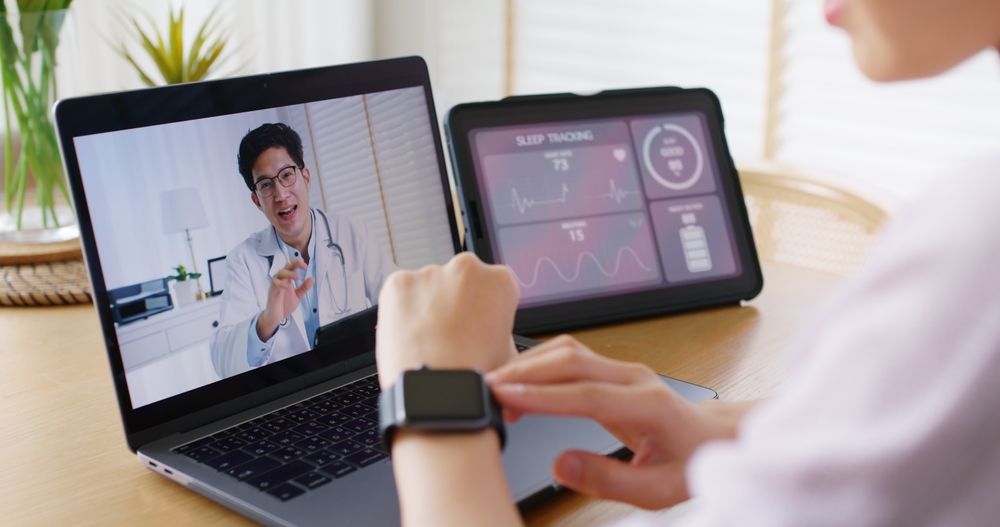Ever wake up feeling more tired than when you went to bed?
You’re not alone.
This relentless fatigue isn’t just poor sleep; it’s often a signal of something much deeper—sleep apnea. Dental sleep medicine is where dentistry meets sleep, offering vital solutions beyond the usual scope of cavities and gum disease.
Dentists in this field play an essential role, employing their expertise to screen and manage sleep-related disorders. They are not just dentists; they are the gatekeepers of restorative sleep. Using specialized training, they tailor treatments like custom-fitted oral appliances, which many find more comfortable than traditional CPAP machines.
These devices subtly adjust the position of the jaw or tongue to keep airways open at night—simple yet profound interventions that make breathing easier and sleep more rejuvenating. In uncovering and treating these hidden conditions, dentists are doing more than safeguarding oral health—they’re enhancing overall well-being and transforming lives one night at a time.
Download Our Free Guide to Stop Snoring Naturally
Dental Sleep Medicine Defined
What exactly is Dental Sleep Medicine? At its core, this specialty focuses on the management of sleep-related breathing disorders, including snoring and obstructive sleep apnea (OSA), through the use of oral appliance therapy and upper airway surgery. Unlike general dental practices, dental sleep medicine looks beyond the teeth and gums to address the critical area of sleep, which impacts overall health significantly.
Dentists specializing in this field work closely with sleep physicians to create a comprehensive treatment plan tailored to the individual needs of each patient. They use their detailed knowledge of the oral cavity to design and fit custom oral devices. These devices primarily aim to maintain an open, unobstructed airway in the throat during sleep. Such interventions can significantly reduce the health risks associated with sleep apnea, including heart disease, stroke, and chronic fatigue.
The goal of Dental Sleep Medicine is not just to improve sleep but to enhance a patient’s quality of life. By ensuring a better night’s sleep, dentists play a crucial role in helping patients feel more alert, energetic, and mentally sharp during the day. It’s a field where small adjustments in oral appliance therapy can lead to profound improvements in health and daily functioning.
Understanding Sleep Apnea
Sleep apnea is a common yet often overlooked sleep disorder that significantly impacts one’s health and daily energy levels. It occurs when a person’s breathing is interrupted during sleep, sometimes hundreds of times a night, and typically without the person even realizing it. These interruptions, known as apneas, can last from a few seconds to minutes and often lead to a sudden drop in oxygen levels in the body.
There are two main types of sleep apnea:
- Obstructive Sleep Apnea (OSA): The more common form, where the airway is physically blocked, often by the collapse of soft tissue in the rear of the throat.
- Central Sleep Apnea: Involves the brain failing to signal the muscles that control breathing, unlike OSA, where there is a physical blockage.
Symptoms of sleep apnea can include:
- Loud, chronic snoring
- Choking or gasping for air during sleep
- Long pauses in breathing
- Excessive daytime sleepiness, despite spending enough time in bed
- Morning headaches
- Difficulty concentrating during the day
- Mood changes, such as depression or irritability
- High blood pressure
- Nighttime sweating
The risks associated with untreated sleep apnea are severe. They include cardiovascular issues such as high blood pressure, heart disease, and stroke. Additionally, the fatigue caused by chronic sleep disruption can lead to problems with cognitive functions, impacting one’s ability to think, concentrate, and make decisions. It can also increase the likelihood of workplace or driving accidents.
Given these implications, understanding and treating sleep apnea is crucial, not only for improving sleep quality but for maintaining overall health and preventing long-term health complications.

Role of Dentists in Sleep Medicine
Dentists play a pivotal role in the treatment of sleep disorders, particularly obstructive sleep apnea (OSA), through their expertise in dental sleep medicine. This specialty enables them to offer critical interventions that often go beyond the capabilities of traditional sleep specialists.
Here’s how dentists contribute uniquely to the field of sleep medicine:
Early Detection
Dentists are often the first healthcare professionals to notice signs of sleep apnea. During routine dental exams, they may observe indicators such as worn tooth surfaces, a small jaw, or enlarged tissues in the mouth and throat, which can all suggest the presence of sleep apnea.
Specialized Training
Dentists practicing in sleep medicine undergo specialized training to understand the dynamics of the airway, not just during waking hours but also during sleep. This training equips them to work collaboratively with sleep physicians to diagnose and manage sleep-related breathing disorders.
Custom Oral Appliances
One of the primary treatment’s dentists provide is the design and fitting of custom oral appliances. These devices are an effective treatment alternative to CPAP machines, especially for patients with mild to moderate obstructive sleep apnea. The appliances work by adjusting the position of the jaw and tongue during sleep, which helps keep the airway open.
Comprehensive Care Coordination
Dentists coordinate with other healthcare providers to ensure comprehensive care. By working closely with sleep physicians, ENT specialists, and primary care doctors, they help integrate the dental management of sleep apnea into a patient’s overall health strategy.
Follow-Up Care
Ongoing management is crucial in the treatment of sleep apnea. Dentists provide continuous care through regular follow-ups to adjust the oral appliance as needed, monitor the patient’s progress, and reassess symptoms to ensure the treatment remains effective.
Through these roles, dentists contribute significantly to enhancing patient outcomes in sleep medicine. Their involvement not only aids in managing sleep-related disorders but also plays a crucial part in improving the overall quality of life for their patients.
Treatment Options Available in Dental Sleep Medicine
In dental sleep medicine, several treatment options are tailored to the specific needs and conditions of patients suffering from sleep-related breathing disorders. These options range from custom oral appliances to innovative therapies like the Vivos treatment. Here’s an overview of the available treatments:
Mandibular Advancement Devices (MADs)
These are the most commonly used oral appliances in dental sleep medicine. They work by slightly advancing the lower jaw (mandible) and holding it in a forward position during sleep. This adjustment helps keep the airway open, reducing the likelihood of obstructions that lead to apnea events.
Tongue Retaining Devices (TRDs)
TRDs work by holding the tongue in a forward position, preventing it from falling back and blocking the airway during sleep. They are particularly useful for patients who cannot effectively use MADs due to dental issues or jaw problems.
Vivos Treatment
A relatively new and innovative approach, the Vivos treatment is designed to address sleep apnea at its root cause. This treatment involves using a specially designed biomimetic oral appliance that remodels and enhances the airway space permanently. Unlike other treatments that are worn only during sleep, Vivos appliances are typically used for a limited period each day, over 12 to 24 months, to gradually expand the jaw and increase airway volume permanently.
Combination Therapy
In some cases, the best results are achieved through a combination of treatments. For instance, a patient might use a CPAP machine in conjunction with an oral appliance, or surgical options might be considered alongside oral appliance therapy.
Surgical Options
While not the first line of treatment, surgical interventions can be considered for patients with structural abnormalities that significantly contribute to their sleep apnea. Procedures can vary from minimally invasive techniques to more complex surgeries aimed at enlarging the airway.
Each of these treatment options has its advantages and considerations, and the choice often depends on the severity of the disorder, the patient’s specific anatomical features, and personal preferences. Dentists specialized in sleep medicine are equipped to guide their patients through these choices, ensuring that they receive the most effective and comfortable treatment to alleviate their symptoms and improve their quality of life.
The Vivos Treatment: A CPAP Alternative
Discover a groundbreaking CPAP alternative with the Vivos treatment, pioneered by Vivos Therapeutics. This innovative approach offers a refreshing escape from the nightly struggle with bulky CPAP machines and the daunting prospect of surgery.
How It Works
The FDA-cleared Vivos System features a personalized oral appliance, worn mainly at night, that gently expands the jaw. This process increases airway space, effectively reducing sleep apnea symptoms in a non-invasive manner.
Key Benefits
- Personalized Comfort: Custom-fit to your mouth for optimal ease and effectiveness.
- Non-Invasive: Avoids surgical procedures, minimizing risks and discomfort.
- Holistic Improvement: Enhances overall airway health, reduces snoring, and reduces related issues such as migraines and TMJ pain.
- Convenience: Simple to use, with potential life-changing improvements within 12-24 months.
The Vivos treatment not only provides an effective solution to sleep apnea but also improves sleep quality and overall well-being, positioning it as a superior CPAP alternative.
Take the Next Step
Countless individuals suffer silently from sleep apnea, battling nightly disruptions, chronic fatigue, and the daily consequences of insufficient rest. It’s a struggle that affects not just the quality of sleep, but overall life satisfaction and health. We understand the impact, and we’re here to tell you there’s a better way. You don’t have to settle for uncomfortable nights and groggy mornings.
At Ecologic Dentistry, under the guidance of Dr. Carla Yamashiro, we are committed to transforming your sleep and health with innovative solutions like the Vivos treatment.
Here’s how we can start:
- In-depth Consultation
- Tailored Treatment Plan
- Non-invasive, Effective Care
So, why wait? Book your free consultation today. Stop the cycle of restless nights and embrace a future of revitalizing sleep and energetic mornings. Start your journey to a healthier, more vibrant life now. Call us today, we can help! (253) 863-7005
Concerned You May Have Sleep Apnea? Take Our Free Quiz and Find Out.
Ecologic Dentistry
(253) 863-7005
Driving Directions
18008 State Route 410 East, Suite A
Bonney Lake, WA 98391
https://ecologicdentistry.com



